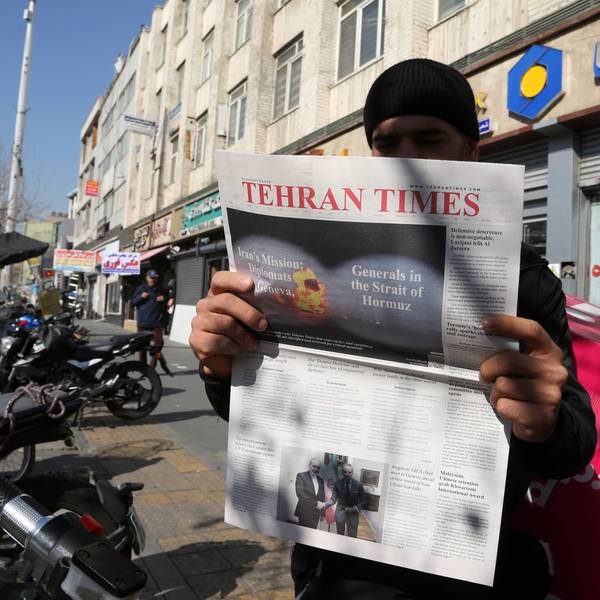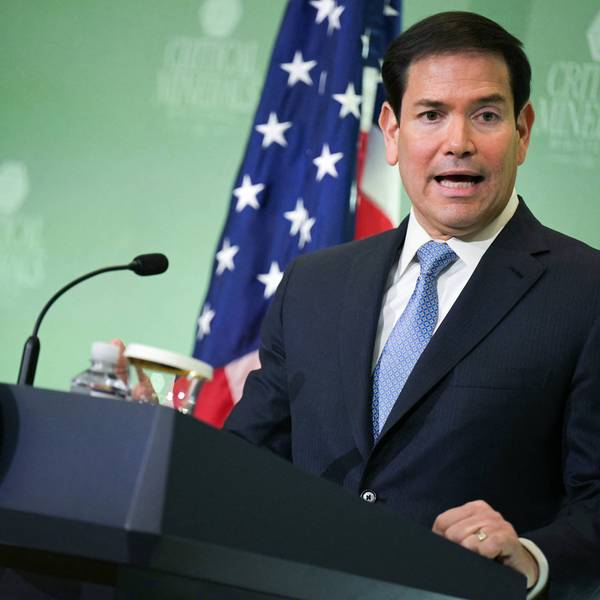During a week where the United Nations General Assembly has gathered at UN headquarters in New York City, Wednesday is the International Day to Eliminate Nuclear Weapons and the irony of that convergence was not lost on anti-nuke campaigners who recognized that having U.S. President Donald Trump chair a meeting of the UN Security Council might be a distraction from the efforts of those nations who have agree that atomic weapons should be banned once and for all.
According to the International Campaign to Abolish Nuclear Weapons (ICAN), which in 2017 won the Nobel Peace Prize for its efforts to abolish nukes, the serious effort to continue that work should not be overshadowed or slowed by Trump's warmongering and public performance at the United Nations.
"While Donald Trump is playing global reality TV star at the UN on Wednesday, other serious leaders will be signing the Treaty on the Prohibition of Nuclear Weapons," said Beatrice Fihn, ICAN's executive director, in a statement ahead of the Security Council meeting. The actions of those nations backing the elimination of the world's nuclear arsenals, she said, "will have far more impact on securing the world than Trump's bloviating."
As part of their effort, ICAN and others are using the day of commemoration at the UN to urge nations who have not yet done so to sign the global treaty that was formally introduced last year. Groups have also turned to pressuring the corporations and industries that are also profiting off the world's nuclear weapons.
On Wednesday, they took aim at international banking giant BNP Paribas by calling on it to divest its nuclear holdings:
While the international Treaty on the Prohibition of Nuclear Weapons (pdf) was adopted in July of 2017 and signed by 60 nations, the treaty will not go into effect until it is ratified by at least 50 countries--a process that could take years. So far, only fifteen states have ratified the treaty and the world's nuclear powers, including the United States, have continued to roadblock, boycott, or otherwise stall the effort.
Despite the opposition, said Greenpeace's Jen Maman on Wednesday, "the pressure on the nine nuclear-armed states is building - from the growing number of nations and financial institutions who are ceasing to invest in the production of these weapons systems, to thousands of people speaking out across the globe."
Both Greenpeace (here) and ICAN (here) have offered ways that people around the world can support the treaty effort.
As the UN declared in a statement on Wednesday:
Achieving global nuclear disarmament is one of the oldest goals of the United Nations. It was the subject of the General Assembly's first resolution in 1946. After general and complete disarmament first came onto the General Assembly's agenda in 1959, nuclear disarmament has remained the most important and urgent objective of the United Nations in this field. Since 1975, it has been a prominent theme of the review conferences of States parties to the Nuclear Non-Proliferation Treaty. In 1978, the General Assembly's first Special Session on disarmament reaffirmed that effective measures for nuclear disarmament have the highest priority. And it has been supported by every United Nations Secretary-General.
Yet today, some 14,500 nuclear weapons remain. Countries possessing such weapons have well-funded, long-term plans to modernize their nuclear arsenals. More than half of the world's population still lives in countries that either have such weapons or are members of nuclear alliances. As of 2018, while there have been major reductions in deployed nuclear weapons since the height of the Cold War, not one nuclear warhead has been physically destroyed pursuant to a treaty, bilateral or multilateral, and no nuclear disarmament negotiations are underway. Meanwhile, the doctrine of nuclear deterrence persists as an element in the security policies of all possessor states and their nuclear allies. The prevailing security challenges cannot be an excuse for continued reliance on nuclear weapons and for abrogating our shared responsibility to seek a more peaceful international society.
According to Olivia Alperstein with Physicians for Social Responsibility (PSR), there has never been a better time than now to ban nuclear weapons for good.
Because there's "a future worth fighting for," Alperstein wrote in an op-ed for Common Dreams this week, "We call on all nations to sign or ratify the treaty and take a bold step toward a nuclear free world."
"Let's make this the year," Alperstein concluded, "when we finally abolish nuclear weapons for good."




